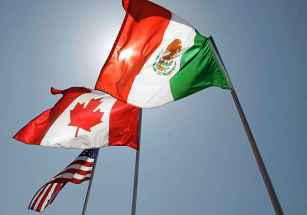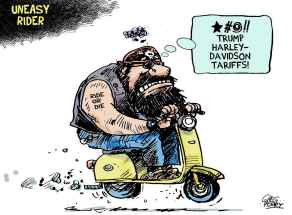Trump’s NAFTA pause a call for Canadian action
Read this article for free:
or
Already have an account? Log in here »
To continue reading, please subscribe:
Monthly Digital Subscription
$0 for the first 4 weeks*
- Enjoy unlimited reading on winnipegfreepress.com
- Read the E-Edition, our digital replica newspaper
- Access News Break, our award-winning app
- Play interactive puzzles
*No charge for 4 weeks then price increases to the regular rate of $19.00 plus GST every four weeks. Offer available to new and qualified returning subscribers only. Cancel any time.
Monthly Digital Subscription
$4.75/week*
- Enjoy unlimited reading on winnipegfreepress.com
- Read the E-Edition, our digital replica newspaper
- Access News Break, our award-winning app
- Play interactive puzzles
*Billed as $19 plus GST every four weeks. Cancel any time.
To continue reading, please subscribe:
Add Free Press access to your Brandon Sun subscription for only an additional
$1 for the first 4 weeks*
*Your next subscription payment will increase by $1.00 and you will be charged $16.99 plus GST for four weeks. After four weeks, your payment will increase to $23.99 plus GST every four weeks.
Read unlimited articles for free today:
or
Already have an account? Log in here »
Hey there, time traveller!
This article was published 03/07/2018 (2721 days ago), so information in it may no longer be current.
The effort to renew Canada’s trade treaty with the United States and Mexico is going nowhere fast. U.S. President Donald Trump, who used to want to renegotiate the treaty, has found that is harder than he thought. Lately, he’s been throwing up tariff barriers against Canadian and Mexican imports in order to bludgeon us into submission.
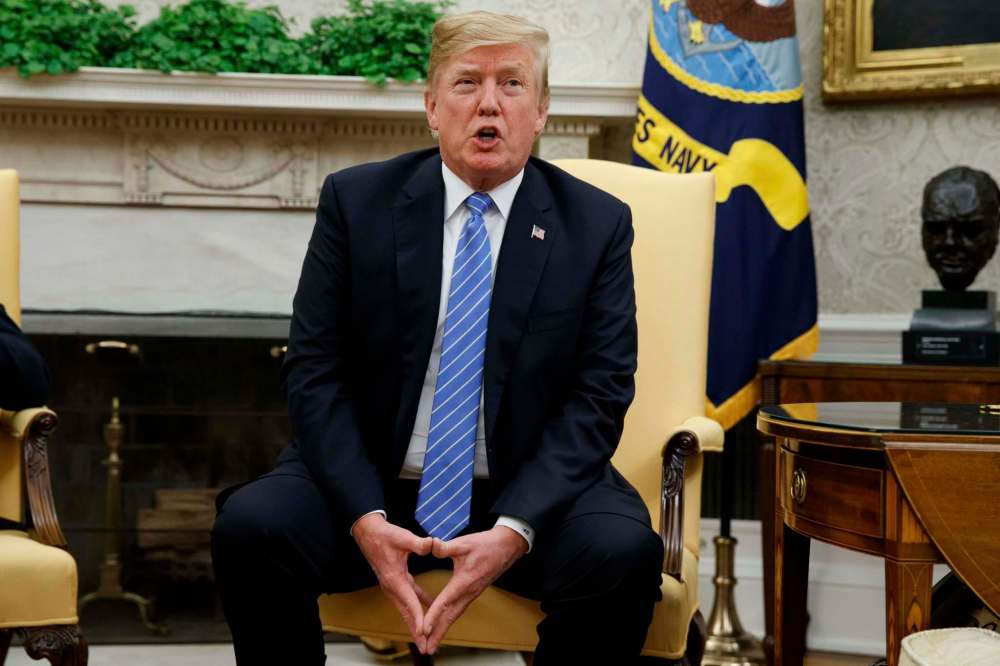
Mr. Trump said Sunday that he wants to wait until after the election before concluding a new North American Free Trade Agreement. He may have meant the Mexican election that on Sunday elevated Andrés Manuel Lopez Obrador to run Mexico, or he may have meant the U.S. mid-term elections in November.
It comes to roughly the same thing either way, because the new Mexican president will take office in December and the new U.S. Congress will begin in January.
Once Mr. Lopez Obrador takes power and once the new Congress is seated, the NAFTA partners may see more clearly how receptive each country is to the others’ ambitions. In the meantime, Mr. Trump’s plan is to force Canada and Mexico to think hard about the pain of resisting his demands and the advantages of seeing things his way.
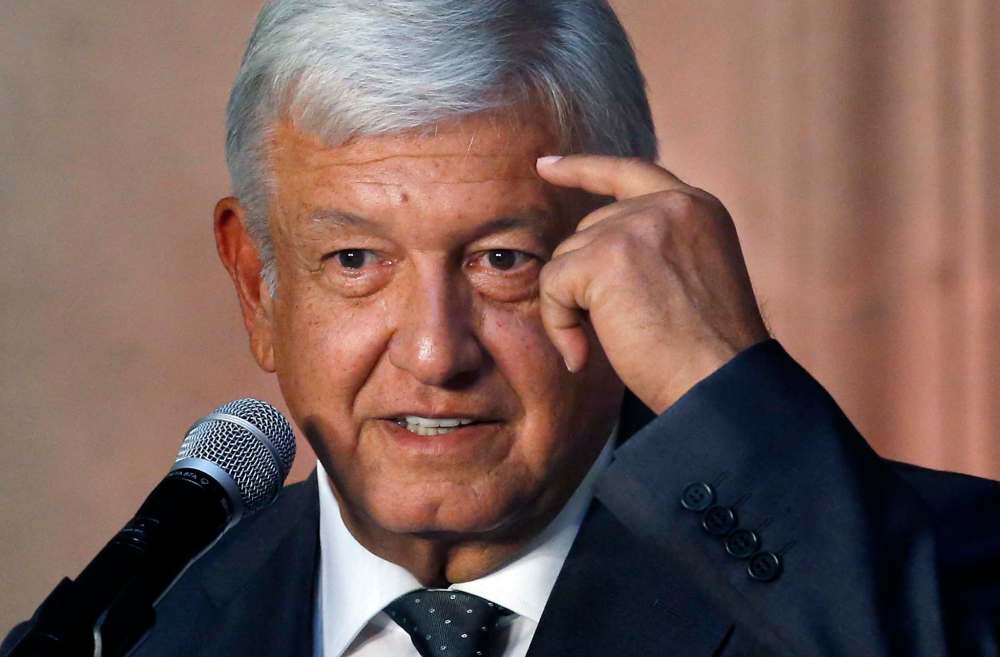
In a report Tuesday by The Canadian Press, an unnamed federal-government official suggested Ottawa wants to restart NAFTA talks as quickly as possible. It’s unlikely, however, that the U.S. side will be able to override Mr. Trump’s delaying tactic and push toward a new deal before November.
For Canada, therefore, the cold, dark winter of U.S. tariff barriers that started on June 1 will continue at least into January and perhaps much longer. If the U.S. electorate in November ratifies Mr. Trump’s “Blame Canada” strategy, this may become the new normal.
The winter of Trump protectionism may stretch into a new ice age of Canadian exclusion from the U.S. market.
The November verdict, however, could weaken congressional support for Mr. Trump, in which case he may have to rethink his rejection of lower trade barriers and continental free trade. In those circumstances, the NAFTA negotiators can get back to work and seek a package of trade rules that will be advantageous for all three countries.
Canadians cannot have much effect on the U.S. mid-term elections. This country can, however, get organized to survive a long siege of U.S. protectionism.Canadians cannot have much effect on the U.S. mid-term elections. This country can, however, get organized to survive a long siege of U.S. protectionism.
We can put the heat on provincial governments to tear down barriers to interprovincial trade so as to make our domestic market more efficient. We can focus on pipeline projects that will help free our oil industry from reliance on the U.S. market.
These things are especially urgent now that Mr. Trump is threatening to kick us out of our accustomed trading system.
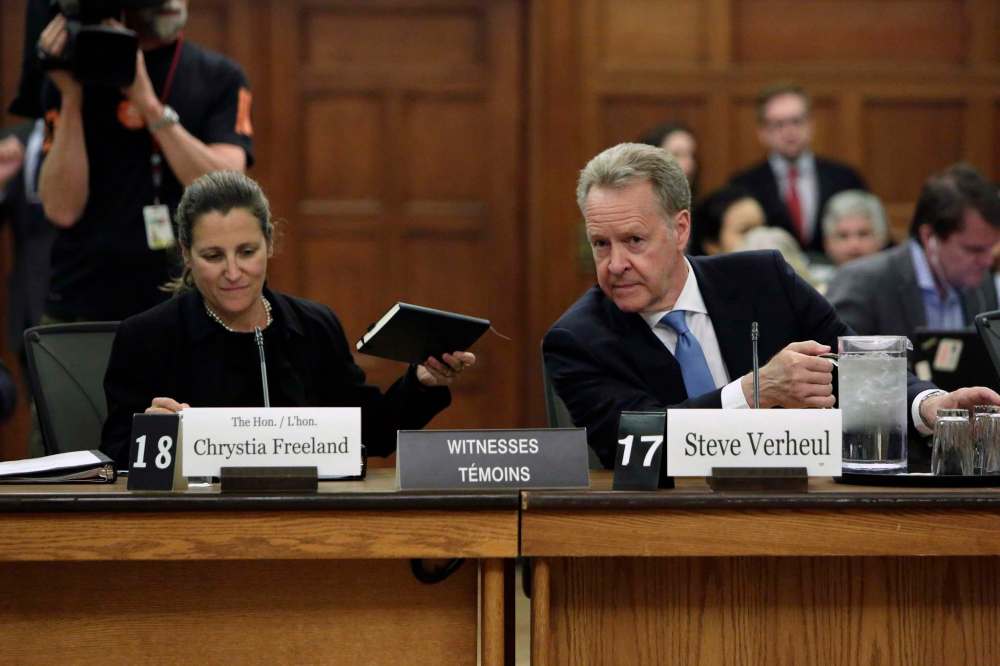
Canada can also put new energy into cultivating markets in Europe and the Pacific Rim to take fuller advantage of the trade treaties we have concluded in those regions.
It may take many years to make up in overseas trade the volumes we will lose through U.S. protectionism, so the sooner we start, the better.
In due course, the U.S. will probably decide that coercion is not the way to go in its dealings with Canada. That is the most likely outcome because the United States is still a well-informed, democratic country that usually respects decency and honourable principles.
There’s no telling, however, how soon that outcome will be achieved. Prime Minister Trudeau and his government should prepare us for the hard road that may lie ahead.








